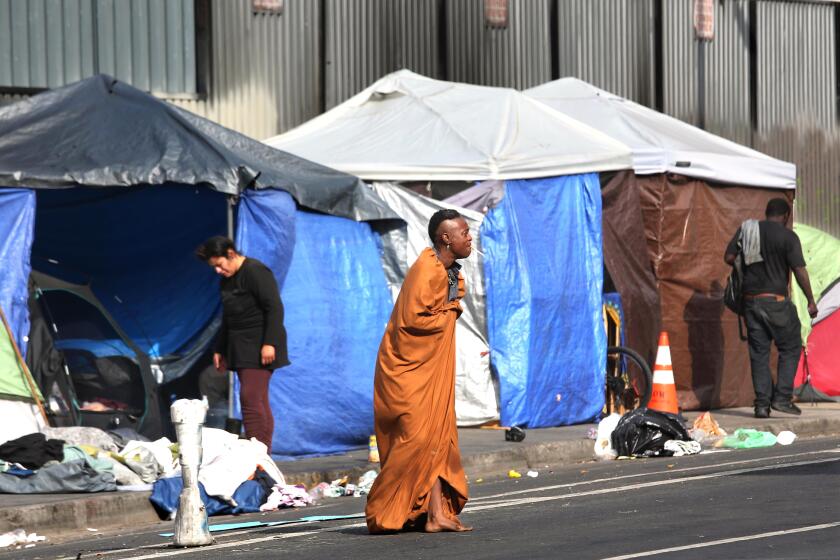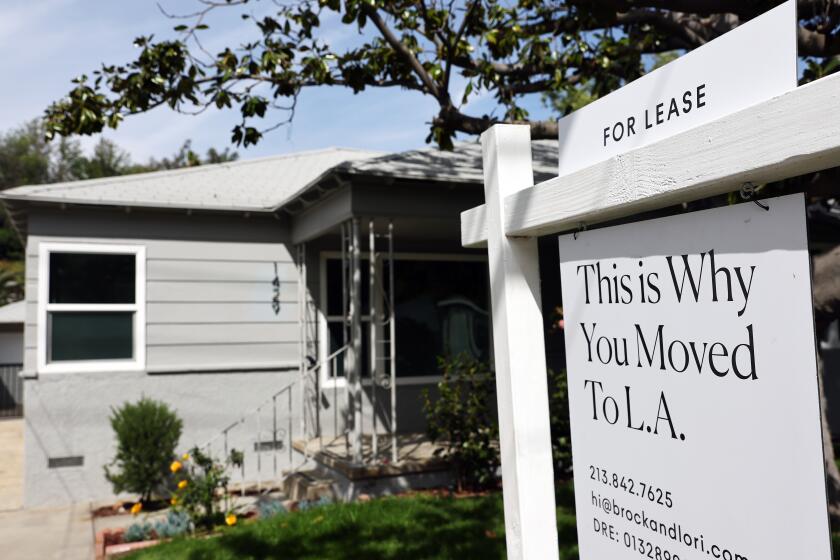Caltrans Under Fire on Homes Along 710 Route
Elected officials and nonprofit developers are pushing to get the scores of ramshackle state-owned homes lining the route of the Long Beach (710) Freeway extension repaired, sold or transformed into affordable housing.
Doing that, they say, could generate taxpayer windfalls and prop up once-tidy neighborhoods that critics say have been pummeled by the state Department of Transportation’s neglect.
“We have said for a long time that if Caltrans can’t manage their real estate responsibly, they should turn it over to someone who can,” said Sue Mossman, executive director of Pasadena Heritage, a historic preservation group.
Along with city and state leaders, Mossman is working to pressure the agency to renovate the houses, which include landmark abodes, and then sell them.
Meanwhile, Assemblyman Bill Hoge (R-Pasadena) says he will amend transportation bills to force Caltrans either to bring the houses up to local building and safety standards or put them up for sale.
“The state should not be allowed to slowly kill off a neighborhood by intentional neglect,” Hoge said.
The calls for action follow a Times report last month on the degenerated inventory of homes Caltrans owns along the proposed extension’s 6.2-mile pathway through Pasadena, South Pasadena and the El Sereno section of Los Angeles. One-fourth of the 600 properties have fallen uninhabitable or vacant, records show. Dozens have become community eyesores, with rotting facades, structural problems and interiors plundered by vagrants and thieves.
Ann-Marie Villicana, the newly elected Pasadena councilwoman whose district includes a string of bedraggled Caltrans houses, said she wants the agency to contract out with a private management company with the ability to fill vacancies, do rehabilitation jobs and bring in responsible tenants. Before she pushes any initiative to do that, she is waiting for a report on the city’s options expected in the next week.
Citing the Southland’s affordable-housing crunch, some nonprofit developers believe the houses could be a wellspring for low-income San Gabriel Valley homeowners willing to roll up their sleeves on rehabilitation work. What’s needed, they said, is financial help from the federal government or other sources and cooperation from local cities.
“If we don’t do anything, it’s not Caltrans’ fault,” said Saundra Knox, executive director of the Pasadena Neighborhood Housing Services, which helped rehabilitate about 30 houses last year. “It’s an opportunity.”
Knox, who made an unsuccessful City Council bid last month, said her organization might craft a proposal to work on the freeway houses. Two other nonprofit developers, the Pacific Housing Alliance and the local branch of Habitat for Humanity, also expressed interest if the right deal can be forged.
Caltrans officials did not return numerous phone calls but said last week their freeway houses are in generally good shape.
The agency is working on a lengthy study of the department’s properties across the state that are either decrepit or producing meager rent, sources said. Once completed, officials might recommend demolition of the worst housing or auctioning them to a nonprofit agency or private owner.
Sign up for Essential California
The most important California stories and recommendations in your inbox every morning.
You may occasionally receive promotional content from the Los Angeles Times.



